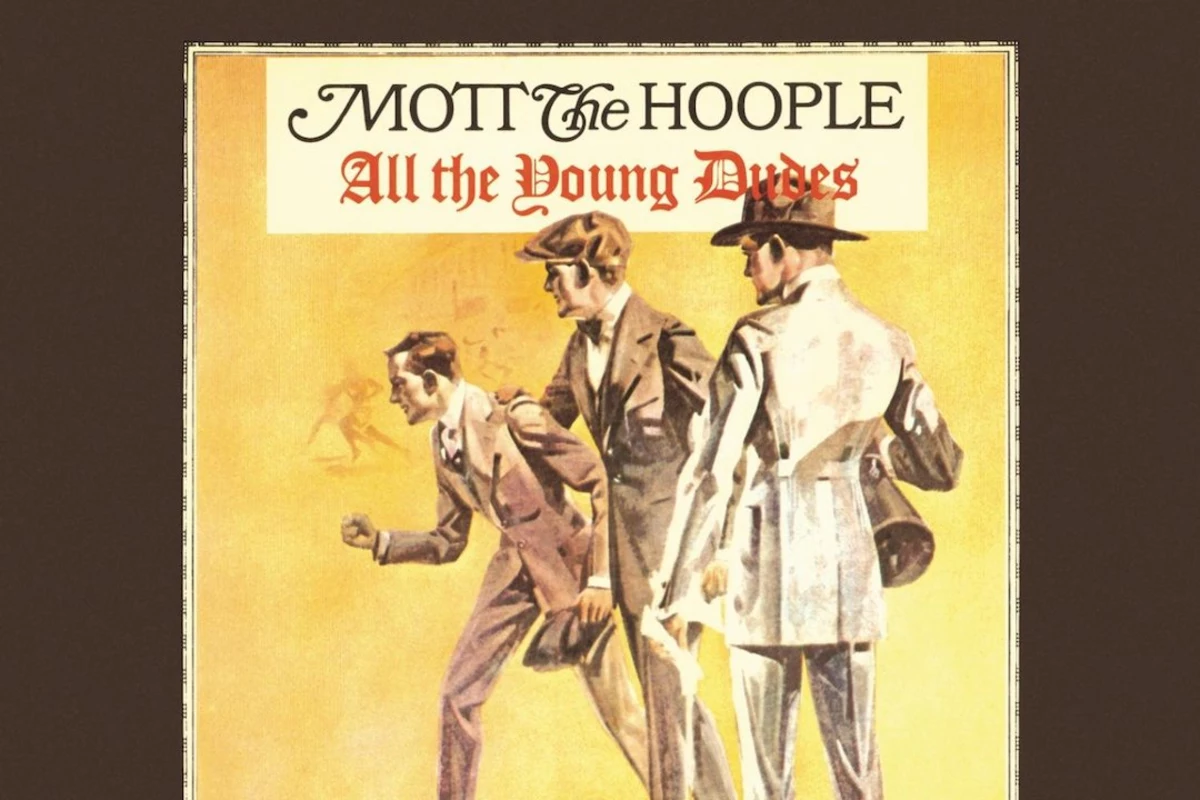The historical past of rock ‘n’ roll is filled with tales of dissolution and catastrophe, of drug-fueled tragedy and extra. Tales of pure, selfless generosity are a lot rarer that they are nearly antithetical to the shape. But it surely’s the latter that lies on the coronary heart of some of the purely rock ‘n’ roll subgenres, glam-rock: the story of Mott the Hoople’s 1972 album All of the Younger Dudes.
Hailing from Herefordshire within the West of England — a rural county whose different most well-known export is its brown-and-white Hereford cattle — Mott the Hoople shaped in 1969 when Island Information producer Man Stevens heard one thing he favored out of a band calling itself at instances the Doc Thomas Group and at different instances Silence. Stevens recruited singer Ian Hunter (relegating the group’s former singer, Stan Tippins, to the place of highway supervisor) and satisfied them to vary their title to Mott the Hoople, after a personality in a novel he’d learn whereas serving time for a drug offense.
Mott the Hoople launched their eponymous debut album – a strutting hard-rock effort with extra swagger than polish – in November 1969. It was a minor success that earned them a cult following in England, however their subsequent three albums all didn’t make a lot of a mark, and by the start of 1972, the band was on the verge of breaking apart. Cue the second of generosity. David Bowie, then on the top of his Ziggy Stardust powers, determined to save lots of them.
Watch Mott the Hoople Carry out ‘All of the Younger Dudes’
As Hoople keyboardist Verden Allen remembered in a 2016 interview with WalesOnline, Bowie “favored our picture and despatched us a telegram inviting us to his agent’s workplace in London.” There, he performed a tune he had written for them. As Bowie informed NME, “I actually wrote that inside an hour or so of studying an article in one of many music rags that their breakup was imminent. I assumed they had been a good little band, and I assumed, ‘This can be an attention-grabbing factor to do, let’s examine if I can write this tune and hold them collectively.'”
The tune Bowie wrote and performed for the band in his agent’s workplace — on a blue guitar whereas sporting a blue catsuit — was “All of the Younger Dudes.” It will change into one of many definitive anthems of the glam-rock motion whereas giving Mott the Hoople a bona-fide hit and making their profession. And for good measure, Bowie supplied to provide the band’s subsequent album, which might even be referred to as All of the Younger Dudes.
The album has Bowie’s fingerprints throughout it. Opening with an understated model of the Lou Reed basic “Candy Jane,” it instantly finds its groove in a sort of shiny showmanship that matches the band’s strengths completely. Hunter’s songwriting shines on tracks just like the midtempo, blues-riff-driven “Momma’s Little Jewel” and the anthemic “One of many Boys.” Guitarist Mick Ralphs’ cool, in-the-pocket type is paying homage to Keith Richards, and he shows some writing chops in “Prepared for Love/After Lights,” the primary half of which he would resurrect with the next group Unhealthy Firm.
Bassist Pete Watts and drummer Dale “Buffin” Griffin swing capably between driving hard-rock rhythms and the cheekier grooves that make up a lot of the album’s glam fare, comparable to “Sucker.” And Bowie’s regular hand as a producer offers the album a robust, clear sound, lending an ideal quantity of cosmic sheen to the band’s energy riffing. A number of tracks — comparable to the attractive ballad “Sea Diver” that closes the album — would not be misplaced on Bowie’s 1972 masterpiece, The Rise and Fall of Ziggy Stardust and the Spiders From Mars.
Hearken to Mott the Hoople’s ‘Sucker’
However the coronary heart of the album is “All of the Younger Dudes.” From the long-lasting opening guitar line and Hunter’s languid, Bob Dylan-esque talk-singing to the operatic refrain and hovering association, the tune helped outline glam as some of the flamboyant, sexually supercharged, gender-bending and rebellious moments in rock historical past.
The tune’s lyrics have a good time different sexuality — the “I am a dude, dad!” chorus reads like a cross between “Guess what: I am homosexual!” and “I’ll costume like a woman if I need, so recover from it!” — and element the difficulties endured by individuals who embrace that sexuality. Billy, one of many tune’s younger dudes, is already speaking about committing suicide despite the fact that he is not but 25. Lucy “attire like a queen” however is generally compelled to “kick like a mule.” The tune’s narrator is distressed as a result of they could not ever fairly get down with the extra easy “revolution stuff” supplied by the Beatles and the Rolling Stones.
That each one of this subversion was delivered by a band whose members weren’t homosexual wasn’t complicated or unintended however a part of the purpose of glam rock. It was about strutting no matter sexuality you needed to strut in the mean time, about dressing up and being who you needed to be, about celebrating individuals who had up till that time been pushed into hiding by the mainstream. It was an inclusive, joyous second in music, based partly on an act of unadulterated generosity.
Prime 100 ’70s Rock Albums
From AC/DC to ZZ Prime, from ‘Bridge Over Troubled Water’ to ‘London Calling,’ they’re all right here.




